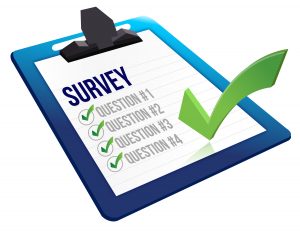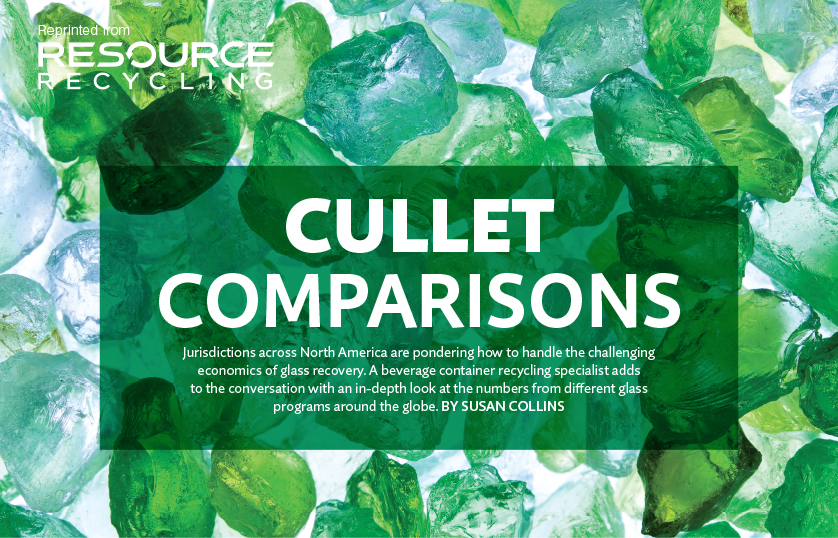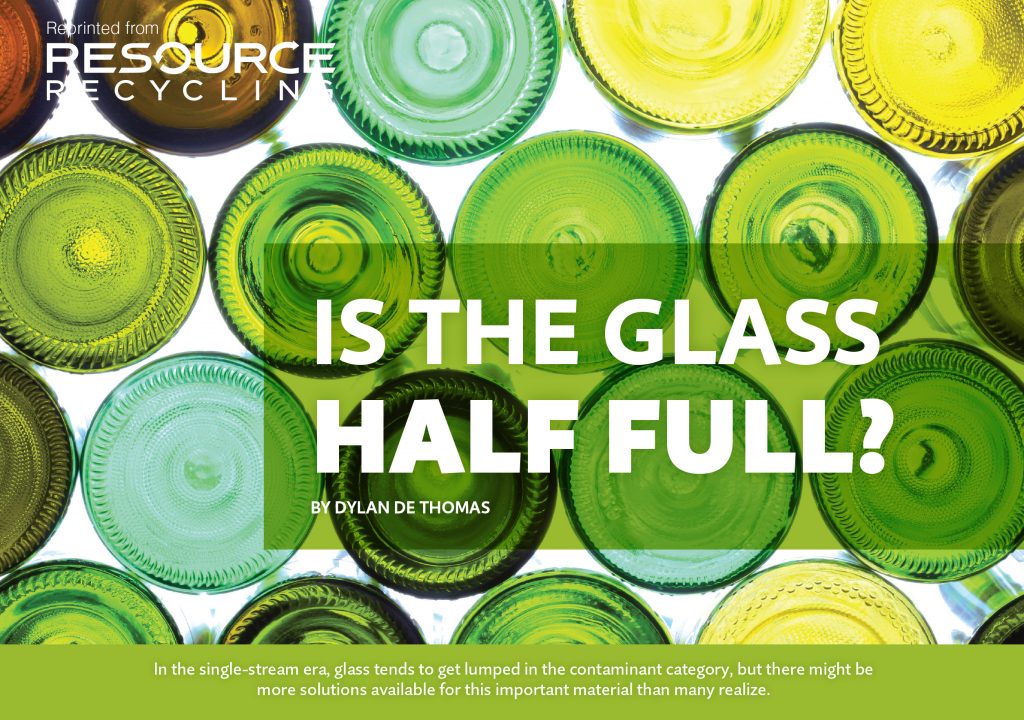 An industry group has launched an online survey asking municipal and state governments, MRFs and glass companies about their local experiences with glass recycling.
An industry group has launched an online survey asking municipal and state governments, MRFs and glass companies about their local experiences with glass recycling.

 An industry group has launched an online survey asking municipal and state governments, MRFs and glass companies about their local experiences with glass recycling.
An industry group has launched an online survey asking municipal and state governments, MRFs and glass companies about their local experiences with glass recycling.
This story originally appeared in the February 2017 issue of Resource Recycling.
Subscribe today for access to all print content.

 At a time when some communities are retreating on glass recycling, Momentum Recycling is doubling down on it.
At a time when some communities are retreating on glass recycling, Momentum Recycling is doubling down on it.
 At a time when some communities are retreating on glass recycling, Momentum Recycling is doubling down on it.
At a time when some communities are retreating on glass recycling, Momentum Recycling is doubling down on it.
This story originally appeared in the February 2016 issue of Resource Recycling.
Subscribe today for access to all print content.

 The Oregon Beverage Recycling Cooperative (OBRC), which operates the state’s container deposit program, announced it will pursue a refillable glass bottle program in partnership with local craft brewers.
The Oregon Beverage Recycling Cooperative (OBRC), which operates the state’s container deposit program, announced it will pursue a refillable glass bottle program in partnership with local craft brewers.
 The small city of Rock Island, Ill. is making changes to its curbside recycling program, and the single-stream system will now include glass.
The small city of Rock Island, Ill. is making changes to its curbside recycling program, and the single-stream system will now include glass.
 A California bill aims to stem the tide of beverage container redemption center closures in the Golden State. But it also threatens the entire container-recycling industry in the state if lawmakers fail to make reforms by next April.
A California bill aims to stem the tide of beverage container redemption center closures in the Golden State. But it also threatens the entire container-recycling industry in the state if lawmakers fail to make reforms by next April.
Houston’s move to remove glass from the curbside stream kills a planned multi-million-dollar industry investment there, according to an executive at glass processing company Strategic Materials.

Houston Mayor Sylvester Turner
Curbside recycling will likely continue uninterrupted in America’s fourth-largest city, but it comes at the expense of glass recovery.
